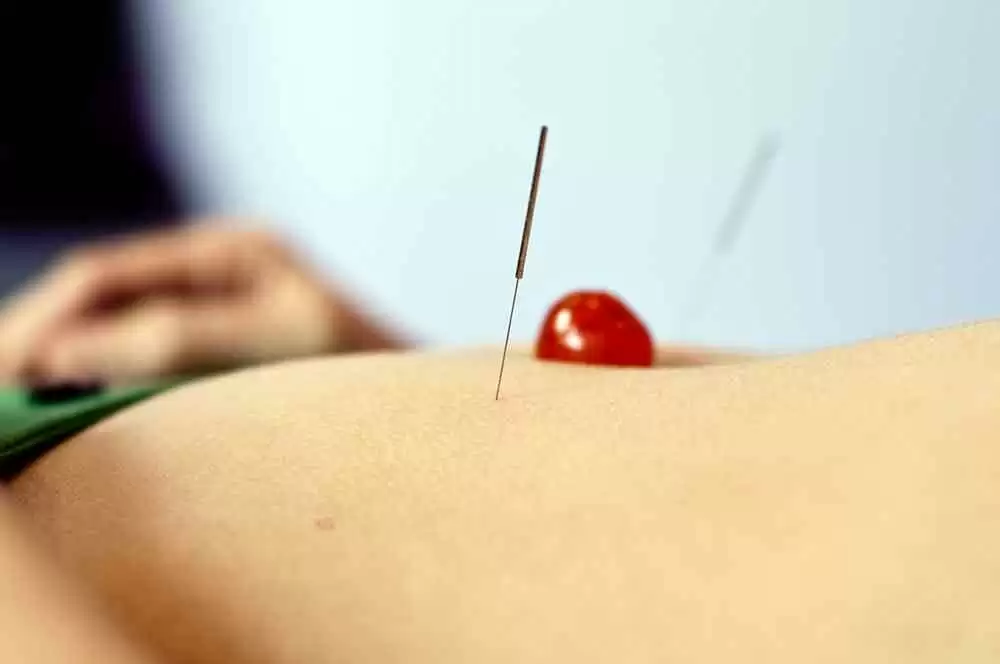
Celiac.com 06/07/2019 (originally published 07/12/2010) - Most of the gluten-free community is thrilled by the rapidly increasing public and professional awareness of our diet and the increasingly wide range of gluten-free choices available to us in supermarkets, health food stores, and even in restaurants. These are exciting times for those of us who avoid gluten. However, there are a few problems associated with the increasing public profile enjoyed by our diet. Members of the Press, and some health care professionals who have not kept up with the research, continue to voice false and faulty perceptions of our diet. The net result of these misinformed, often authoritative, statements, cautions, and prohibitions is that many individuals who might benefit from the diet are dissuaded from trying it or are encouraged to abandon it prematurely.
While few health care professionals (there are some) contest compliance with a gluten-free diet for those with celiac disease or dermatitis herpetiformis, many more are resistant to non-celiac gluten sensitivity as a cause to follow the diet. Others assert that the gluten-free diet lacks the necessary vitamins, minerals, and calories to sustain good health. Still others decry the lack of fiber in many gluten-free diets or they claim that it lacks the complex carbohydrates provided by gluten grains or alternative whole grains. One prominent gastrointestinal researcher even advocates consumption of breakfast cereals that contain malt flavorings. He asserts that our diet is so restricted that patients may abandon the diet altogether if they are not given the latitude to consume small amounts of gluten. Similarly, foods made from oats are increasingly advocated as “safe”, while the research is less than conclusive on this issue. To add to the confusion, many health food clerks and naturopaths are advocating spelt and kamut as being “safe” for those who avoid gluten. Over the past year, there has been a rash of publications in the popular press that depict the gluten-free diet as a passing fad because some individuals have been using it to lose weight.
Celiac.com Sponsor (A12):
This cornucopia of misinformation is more than an inconvenience for people who follow a gluten-free diet. In some cases, their health is at risk. In other cases, dismissals or misinformation will lead them back to eating gluten and all the health hazards it poses. Still others, many of whom already feel marginalized by their diet feel discredited and dismissed. Let’s examine each of these claims in light of the peer reviewed medical literature:
An overwhelming majority of researchers recommend a gluten-free diet for those who suffer from dermatitis herpetiformis. Many researchers consider dermatitis herpetiformis to be a skin manifestation of celiac disease. To that end, authoritative reports in the research literature recommend treatment with a strict gluten-free diet and the use of Dapsone as a drug that can offer the patient temporary relief while the diet takes effect (1). However, one drug usage evaluation of Dapsone makes no mention of the diet (2). This is congruent with the recommendations of many dermatologists who believe that Dapsone is the only realistic treatment for dermatitis herpetiformis and that the gluten-free diet is a foul-tasting, alternative that will be eschewed by most patients. I have listened to one such dermatologist spout his condemnation of the diet in a presentation to a group of celiac patients. He went on to indicate that those who comply with the diet are members of a radical minority who are driven by fanatic zeal (3). Although the presentation took place in 1999, I frequently hear from people with dermatitis herpetiformis who have more recently been offered similar medical advice by their dermatologists.
Only a couple of weeks ago, I heard from a lady I had encouraged to seek testing for celiac disease and non-celiac gluten sensitivity. She quoted the gastroenterologist she visited for an endoscopy, etc. as saying “Either you have Celiac Disease or you don’t, this office does not believe in those other tests.” This is a blatant denial of a report from Ireland in which early mortality among those with gluten sensitivity has been found to be greater than in the general population (4). Similar findings have been reported from Sweden (5). In a comment on these publications, Dr. Peter Green wrote (in part) the following:
Until recently, gluten sensitivity has received little attention in the traditional medical literature, although there is increasing evidence for its presence in patients with various neurological disorders and psychiatric problems. The study by Ludvigsson and colleagues reinforces the importance of celiac disease as a diagnosis that should be sought by physicians. It also suggests that more attention should be given to the lesser degrees of intestinal inflammation and gluten sensitivity (6).
Those who wrongly impugn the gluten-free diet as nutritionally inadequate have been with us for some time. Our culture seems to have developed an almost religious fervor about the health benefits of grains, particularly whole grains, yet the evidence to support such claims is sparse at best. Yes, they do contain some vitamins and minerals that are valuable to human health, but these same nutrients are abundantly available elsewhere. In fact, despite our very long-standing tradition of valuing various dietary carbohydrates, reductions of carbohydrate consumption may well lead to significant health improvements (7). There are several cultures, most notably the Inuit, that survived and thrived for millennia eating diets that were substantially free of carbohydrates and completely bereft of grains (8) and Europeans who adopted their life ways continued to enjoy robust health (8). Demonstrations of this dynamic were closely monitored and reported by physicians at New York’s Bellevue as early as 1929 when two explorers, V. Stefansson and K. Andersen were reported to have improved or maintained their good health during more than one year of eating a diet comprised of raw and cooked meat only (9, 10). Surely a diet that excludes only gluten grains is not lacking in necessary nutrients if an exclusively meat diet provides adequate nutrition.
It is less than rational for physicians to recommend gluten-free diets that allow breakfast cereals that contain malt flavorings. This is a little like recommending salted peanuts as part of a salt free diet. One of the physicians recommending malt flavorings to celiac patients is also a very vocal advocate of including oats in the gluten-free diet.
Oats have long been a contentious issue in the gluten-free community. Most members of the gluten-free community are aware of the debate. Some opt to eat oats while others prefer to avoid them, and some report that they experience symptoms of gluten ingestion when eating oats. Presumably to clear up this issue, the professional advisory board of the Canadian Celiac Association published a position paper in the Canadian Journal of Gastroenterology in 2007 (11). Like many other such publications, this group acknowledges that “There are case reports of individuals with celiac disease relapsing with the consumption of pure uncontaminated oats.” They also acknowledge that “When adding oats to the diet, individuals may experience a change in stool pattern or mild gastrointestinal symptoms, including abdominal bloating and flatulence. These symptoms should resolve within a few days.”
For those of us who spent years in search of an accurate diagnosis, such statements are fraught with problems. First, many celiacs are asymptomatic. How can we know whether oats are really safe? Endoscopies sometimes fail to reveal celiac-associated intestinal damage, when too few intestinal biopsies are taken due to patchy intestinal lesions (12). This clearly demonstrates that one or a small series of biopsies is not adequate to ensure that oats are not causing intestinal damage. Please recall that this group acknowledges that some celiacs do develop intestinal damage due to oats ingestion. We don’t know how many are missed because of “patchy lesions”, and even those who are supposedly safe eating oats must expect celiac-like symptoms for an initial period of eating them. Of course, no consideration is given to the possibility that those with non-celiac gluten sensitivity may also be harmed by oats. I would want a stronger argument from a car salesman than the oats advocates are offering in this paper. When it comes to my health, these assertions are just too flimsy for me.
There are a number of reports of celiac patients who cannot tolerate oats (13, 14, 15, 16). In a recent conversation with Dr. Rodney Ford, he suggested that the number of celiacs who need to avoid oats is about 1 in 20. The challenge here is to ensure that we are not the twentieth celiac. And all of this ignores the issue of cross contamination. How many places do you know where they grow oats and only oats? Do they cultivate, seed, harvest, transport, and mill it in equipment that only handles oats? If not, then it is almost impossible to avoid getting some contamination from other, unquestionably gluten-containing grains.
The gluten-free diet is a passing fad. Over the last year I read a number of articles published throughout the USA and the UK depicting the gluten-free diet as a silly fad. These articles could only have been written by journalists who have not followed the diet themselves. If they had experienced the inconvenience, added expense, and the social marginalizing that usually accompany the diet they would be much less likely to write such drivel.
Some of these writers decry the use of a gluten-free diet as a weight loss strategy. Perhaps they haven’t noticed that we are in the middle of an obesity epidemic, and if the gluten-free diet helps people to lose weight, I don’t understand the objection. Other journalists have suggested that those who have non-celiac gluten sensitivity do not need the diet either. Yet these same people have, according to the only two studies I’m aware of that have investigated this group, a greater risk of early death than those with celiac disease. I don’t know about journalists, but I consider that a pretty good motivation to avoid gluten even in the absence of celiac disease.
Perhaps the most egregious statement that is too often made by a variety of health care professionals and parroted by lay people is that the gluten-free diet is “nutritionally inadequate”. This is disturbing and utter nonsense. Most of the world’s populations survived and thrived before Europeans spread across the globe bringing gluten grains with them. Most of that spread has only occurred during the last few hundred years. From the Australian Aborigine to the Inuit of the Arctic, from most of Africa to the Americas, gluten grains are a new food. The suggestion that they are nutritionally necessary, or even important, is to reveal a very deep level of confusion about food, culture, and the evolutionary forces that have shaped human digestive systems.
There are, of course, many other common misconceptions about the gluten-free diet. The common preoccupation with fiber ignores recent research data that debunks that myth. Some people imagine that the gluten-free diet must include foods that act as substitutes for the gluten-containing foods we grew up with. There are even some woefully misinformed individuals who advocate kamut and spelt as safe in a gluten-free diet. This is INCORRECT. There is no question that the diet is inconvenient and expensive, but the rest of the above misconceptions range from foolish to dangerous and are often the result of having been socialized into a culture that values gluten grains far beyond any rational understanding of their benefits to those who do not have celiac disease or gluten sensitivity. I am sometimes tempted to suggest that such strong feelings appear more closely akin to the protestations of an addict rather than taste preferences. Such powerful beliefs could be argued to be rooted in the morphine-like properties of gliadorphins , also known as opioids, that are found in all the gluten grains.
Sources:
- Caproni M, Antiga E, Melani L, Fabbri P; Italian Group for Cutaneous Immunopathology. Guidelines for the diagnosis and treatment of dermatitis herpetiformis. J Eur Acad Dermatol Venereol. 2009 Jun;23(6):633-8. Epub 2009 Mar 10.
- G. Kannan,* J. Vasantha, N. Vanitha Rani, P. Thennarasu, K. Kousalya, P. Anuradha, and C. Umamaheswara Reddy Drug Usage Evaluation of Dapsone Indian J Pharm Sci. 2009 Jul–Aug; 71(4): 456–460.
- Pappas. Dermatitis Herpetiformis. National Conference, Canadian Celiac Association, Kitchener-Waterloo, May, 1999.
- LA Anderson, SA McMillan, RGP Watson, P Monaghan, AT Gavin, C Fox, LJ Murray Malignancy and mortality in a population-based cohort of patients with coeliac disease or ‘gluten sensitivity’ World J Gastroenterol 2007 January 7; 13(1): 146-151
- Ludvigsson JF, Montgomery SM, Ekbom A, Brandt L, Granath F. Smallintestinal histopathology and mortality risk in celiac disease. JAMA. 2009;302 (11):1171-1178.
- Peter H. R. Green Mortality in Celiac Disease, Intestinal Inflammation, and Gluten Sensitivity JAMA. 2009;302(11):1225-1226
- Pérez-Guisado J, Arguments In Favor Of Ketogenic Diets, The Internet Journal of Nutrition and Wellness 2007 : Volume 4 Number 2
- Phinney SD, Ketogenic diets and physical performance. Nutrition & Metabolism 2004, 1:2
- Lieb CW, The effects on human beings of a twelve months exclusive meat diet. JAMA, July 6, 1929, 20-22.
- Stefansson V. “Adventures in Diet.” Harper’s Magazine, November, December, 1935, January 1936
- Rashid M, Butzner D, Burrows V, Zakardis M, Case S, Molloy M, Warren R, Pulido O, Switzer C. Consumption of pure oats by individuals with celiac disease: A position statement by the Canadian Celiac Association. Can. J. Gastroenterol 2007; 21(10): 649-651.
- Green PH. Celiac disease: how many biopsies for diagnosis? Gastrointest Endosc. 2008;67(7):1088-1090.
- Ellis HJ, Ciclitira PJ. Should coeliac sufferers be allowed their oats? Eur J Gastroenterol Hepatol. 2008 Jun;20(6):492-3. Review.
- Silano M, Dessì M, De Vincenzi M, Cornell H.In vitro tests indicate that certain varieties of oats may be harmful to patients with coeliac disease. J Gastroenterol Hepatol. 2007 Apr;22(4):528-31.
- Kilmartin C, Wieser H, Abuzakouk M, Kelly J, Jackson J, Feighery C. Intestinal T cell responses to cereal proteins in celiac disease.Dig Dis Sci. 2006 Jan;51(1):202-9.
- Lundin KE, Nilsen EM, Scott HG, Løberg EM, Gjøen A, Bratlie J, Skar V, Mendez E, Løvik A, Kett K. Oats induced villous atrophy in coeliac disease. Gut. 2003 Nov;52(11):1649-52.












Recommended Comments
Create an account or sign in to comment
You need to be a member in order to leave a comment
Create an account
Sign up for a new account in our community. It's easy!
Register a new accountSign in
Already have an account? Sign in here.
Sign In Now